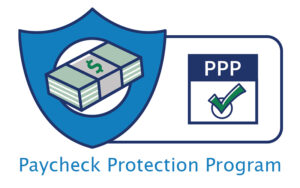On November 29, 2023, FinCEN released a final rule on the Corporate Transparency Act.
Category: Corporate | Business
Preparing for the Corporate Transparency Act – Part III: Who is Exempt?
This is the third installment of a series of articles on the Corporate Transparency Act (“CTA”) providing more information regarding who is exempt from the CTA’s requirement to report personal information of Beneficial Owner’s and Company Applicant’s to the federal government.
Preparing for the Corporate Transparency Act – Part II: Who is a Beneficial Owner, and What Gets Reported?
This is the second installment of a series of articles on the Corporate Transparency Act (“CTA”). This article dives deeper into who is a Beneficial Owner for a Reporting Company, and what information about them gets reported to the federal government.
Preparing for the Corporate Transparency Act – Part I: What is it?
What is the Corporate Transparency Act, and how could it affect you? This is the first in a series of articles about the CTA, who it affects, what it requires, and who may be exempt.
5 Avoidable Mistakes For Newly-Formed LLCs
The formation of a limited liability company (LLC) is a common legal tool, and for good reason. LLCs provide valuable legal protections to their owners, referred to as “members,” by separating the members’ personal assets from the liabilities and legal obligations of the LLC. Although LLCs can be valuable legal tools, if they are not managed properly, they can cause more harm than good.
Cybersecurity: How opening one email can expose your company to liability

A company’s preparation and response to a data breach can affect both civil and regulatory liability, but there are ways to mitigate that liability.
Cybersecurity: How opening one email can expose your company’s confidential data

A company’s response and preparation for a data breach can affect both civil and regulatory liability. Is your company prepared?
Margie Cunningham, Dan Hunt and Steve Schmidt named Strauss Troy Shareholders
Strauss Troy congratulates attorneys Margie Cunningham, Dan Hunt and Steve Schmidt, who have been named Shareholders of the firm. Margaret E. Cunningham (“Margie”) represents individuals, real estate investors, developers, and lenders in real estate transactions and related areas. Her practice is currently focused on commercial real estate transactions, commercial and residential title insurance, drafting and …Read More
Breaking News – Update on Status of OSHA Emergency Temporary Standard (ETS) for Employers with 100 or More Employees

Attorney Julie K. Hopkins provides an update on the status of the OSHA Emergency Temporary Standard (ETS) for Employers with 100 or More Employees.
Mandating the COVID-19 Vaccination: Update for Kentucky and Ohio Employers

Strauss Troy’s Julie Hopkins updates Kentucky and Ohio employers on COVID-19 vaccination mandates, including handling ADA and religious exemptions.
Strauss Troy attorneys recognized by Best Lawyers in America

Strauss Troy is pleased to announce that 14 of our attorneys have been recognized as The Best Lawyers in America 2022. Three Strauss Troy attorneys were also recognized by Best Lawyers as Lawyer of the Year. Attorneys named to The Best Lawyers in America are recognized by their peers in the legal industry for their …Read More
Was your business harmed by COVID-19? You could be eligible for property tax relief.

If your business was negatively impacted by COVID-19, you might be eligible for a property tax reduction. On April 27, 2021, Ohio enacted a special law that allows commercial property owners (and certain tenants) to apply for reductions of their 2020 property tax bill if their income-producing properties were affected by COVID-19. The law is intended to alleviate the financial impact of COVID-19 on Ohio businesses. The application process is intricate, and an experienced attorney can navigate it to optimize this valuable opportunity for a tax bill reduction.
ARPA modifications, extension of paid sick leave and family leave credits

Dear Client: The American Rescue Plan Act of 2021 (ARPA), signed by President Biden on March 11, 2021, extended and significantly modified the payroll tax credits for qualifying sick leave and family leave wages. Below is a summary of the key provisions. Background: Both Covid-19-related credits were initially provided by the Families First Coronavirus Response …Read More
Strauss Troy welcomes three new attorneys
Strauss Troy welcomes Julie Hopkins, Bo Howell, and Austin Stevenson. The additions complement the firm’s labor and employment, corporate law, and securities law practice groups.
Second Draw Loans and Related PPP Updates

The Consolidated Appropriations Act, 2021 provides $900 billion in stimulus relief for the COVID-19 pandemic, including $284 billion for the SBA’s Paycheck Protection Program (PPP) for new and previous borrowers under the Economic Aid Act.
Eight Strauss Troy attorneys recognized by Super Lawyers 2021

Strauss Troy is pleased to announce eight of our attorneys have been recognized by Super Lawyers 2021. The annual Super Lawyers list recognizes outstanding attorneys across the country. Only 5% of attorneys are recognized as Super Lawyers and only 2.5% of attorneys are Rising Stars, an honor for attorneys 40 or younger or attorneys practicing …Read More
Strauss Troy welcomes four new attorneys
Strauss Troy welcomes Stephen S. Schmidt, Daniel A. Hunt, Brian R. Tracy, and Ryan F. Hemmerle to the firm. Stephen S. Schmidt is a litigator and business advisor who focuses his practice in the areas of complex commercial litigation, construction litigation, employment litigation and tort law. Steve represents and advises clients across a variety of …Read More
SBA Announces Restrictions on PPP Borrowers’ Mergers and Transfers of Assets or Ownership

On Friday, October 2, 2020, the U.S. Small Business Administration issued SBA Procedural Notice 5000-20057, which provides long-awaited guidance regarding pre-forgiveness restructures and ownership changes of borrowers under the Paycheck Protection Program.
PPP Frequently Asked Questions

On May 19, 2020, the Small Business Administration released a list of frequently asked questions for lenders and borrowers.
PPP Loan Forgiveness and Deductible Expenses

PPP loans are subject to forgiveness to the extent that a borrower uses PPP funds for payroll costs and certain mortgage interest, rent and utility obligations during the 8 week period following loan disbursement.

